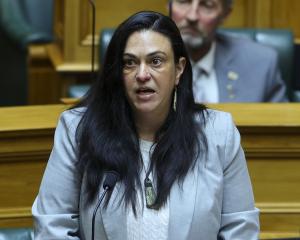German Chancellor Angela Merkel said it best: ''Spying on friends is not on at all''.
Mrs Merkel was making her first public comment following allegations last week the United States National Security Agency tapped her mobile phone and intercepted the calls and text messages of millions in France.
A European Union summit was forced to grapple with the issue following a 20-minute phone call between Mrs Merkel and United States President Barack Obama.
The leaders of the 28-state EU took note of the intention of France and Germany to seek bilateral talks with the US on what their secret services should and cannot do.
The demand from Berlin and Paris, on the back of anger in Brazil and Mexico at agents also listening into their leaders' calls, comes with the aim of finding before the end of the year an understanding on mutual relations on secret service rules.
The US response to Germany's outrage was peculiar, with a White House spokesman saying the US ''is not monitoring and will not monitor'' Mrs Merkel's communications.
Obvious by omission was the past tense, leaving many to query whether the US had done so previously, before the leaked documents came to light.
An NSA memo provided by The Guardian newspaper whistleblower Edward Snowden reveals the NSA monitored the phone conversations of 35 world leaders after being given the numbers by an official in another US government department.
The document notes one unnamed US official handed over 200 numbers, including those of the 35 world leaders, none of whom is named.
The NSA memo obtained by The Guardian suggests such surveillance is not isolated, as the agency routinely monitors the phone numbers of world leaders and even asks for the assistance of other US officials to do so.
If correct, the claims are outrageous and come at a sensitive time in New Zealand with the recent passing of controversial new legislation allowing the Government Communications Security Bureau to spy on New Zealanders.
The New Zealand law will enable the spy agency to legally support the New Zealand Police, Defence Force and Security Intelligence Service in surveillance operations on citizens and residents. Regarded as one of the most polarising pieces of legislation in recent times, the GCSB Bill, and its related legislation, was pushed through various stages, often by just one vote.
Prime Minister John Key rejected allegations the law gave the GCSB sweeping powers to spy on New Zealanders. But now, as the revelations about NSA surveillance are revealed, Mr Key may find he is one of the world leaders who is himself under surveillance.
Given Mr Key's visits to Asian, South American and Australian leaders, along with a visit to Balmoral Castle to visit the Queen, it seems likely someone will have wanted to know the conversations he had with various parties.
The memo obtained by The Guardian suggests eavesdropping has produced little reportable intelligence. But the US is facing growing international criticism any intelligence benefit from spying on friendly governments is far outweighed by the potential diplomatic damage.
The New Zealand Government would be wise to follow the lead of the European Commission, the executive body of the EU, which backed proposals which may require US technology companies to seek permission before handing over data from EU citizens to US intelligence agencies.
New Zealanders need to be reassured they are not being monitored, except in the extreme cases where terrorist activity is suspected. Casual monitoring of citizens in the hope of uncovering something of interest is reprehensible. And quoting glib lines such as if you have nothing to hide you have nothing to worry about is unacceptable.
New Zealanders are owed an assurance their data is not being passed on to US intelligence agencies, or any other intelligence agencies, without proper cause. That assurance needs to come swiftly.












